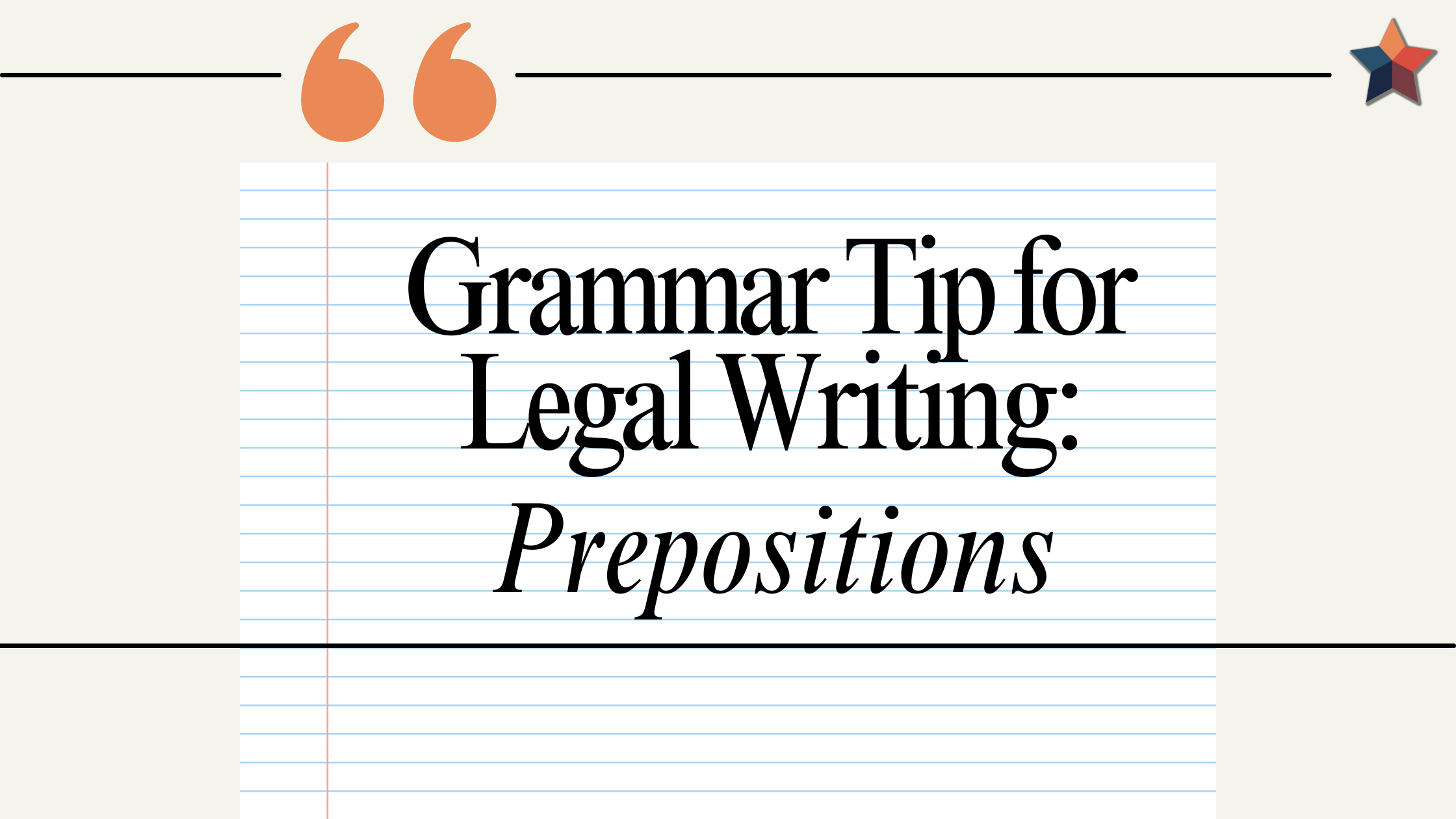Why Ending a Sentence with a Preposition Isn't Always the End of the World
Published on December 11, 2023 From The Editors

Fellow legal grammarians, we're diving into the perilous world of prepositions, and more specifically, the age-old debate of whether or not we should end our sentences with them. Buckle up and get ready to improve the quality of your legal writing and your practice, because we're about to embark on a grammatical rollercoaster that'll make your English teacher cringe!
What Are Prepositions?
Let's talk about prepositions. Prepositions are usually tiny words that often convey location (at trial), direction (a jury summons to you), time (by noon), or introduce an object (an inbox of discovery requests). They show relationships between other words—"In," "on," "under," "with," "about"—you get the idea.
Now, we've all been told not to end our sentences with these little troublemakers. But why, you ask? Well, that's the question, and it's time to dissect this grammatical quirk.
A Look at the Preposition Conundrum in Action
Picture this: you're writing a scintillating blog post for the Texas Bar Practice website about your recent victory in court. You're feeling on top of the world, and you're about to write the climactic sentence of your story. But then, you remember the grammar police lurking in the shadows. You're not sure if it's okay to write, "The jury came in with a judgment for my client; it was really something to be proud of."
Oh, the dilemma! Do you stick to the rule and say, "The jury came in with a judgment for my client; it was really something of which to be proud.”? That sounds like you're a spirit medium for Shakespeare and not in a good way. Or do you say, "The jury came in with a judgment for my client; I was so proud of it."? That doesn’t seem quite right either. It's like ending your story with a grammatical cliffhanger.
The tension is unbearable!
Now, let's be honest here. Sometimes, sentences structured to avoid ending with a preposition sound ridiculously convoluted. If you're telling a friend about the exciting new CLE course you discovered, would you really say, "I found a great new CLE course to which we should go"? Or would you rather keep it simple with, "I found a great new CLE course to go to."?
You see the issue here, right?
The truth is, ending sentences with prepositions isn't the grammatical sin it's made out to be. In fact, many famous authors, like Winston Churchill, have used these constructions in their writings, and Churchill is famously connected with this prepositional outburst. Churchill was said to have scrawled, “This is the kind of tedious nonsense up with which I will not put” across a rambling ministerial report. Although the wording of this quotation is often disputed, as is its attribution to Churchill, we all understand its meaning.
Don’t Let Archaic Rules Constrain Your Legal Writing Abilities
Language is living and evolving. Rules change. The Chicago Manual of Style maintains that “the traditional caveat of yesteryear against ending sentences or clauses with prepositions is an unnecessary and pedantic restriction.”
So, go ahead, end your sentences with prepositions when it feels right, when it flows, and when it makes your legal writing shine. After all, in the grand scheme of life and your law practice, there are bigger fish to fry and more important grammar rules to uphold.
Remember, language should be a tool to express, not oppress, and if anyone challenges your choice to end a sentence with a preposition, just channel your inner Churchill, wave the Chicago Manual of Style, and reply with, "This is the sort of tedious nonsense up with which I will not put!" They'll get the point.

Elizabeth Floreani
Elizabeth Floreani is an editor at Texas Bar Books. She has worked as an educational consultant and community specialist in ed tech, taught secondary English and journalism, facilitated gifted and talented learning programs, coached chess and robotics teams, and taught violin. When she isn’t poring over legal manuals, Elizabeth loves spending time with her husband and children, her three pups, and four hens!